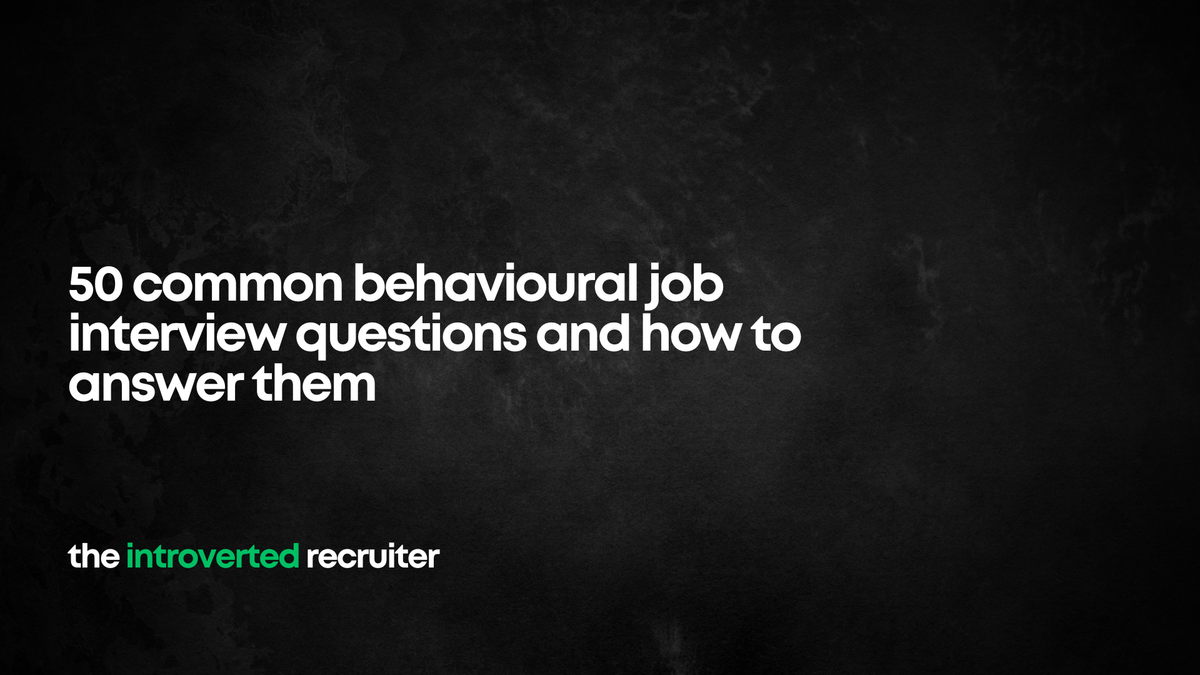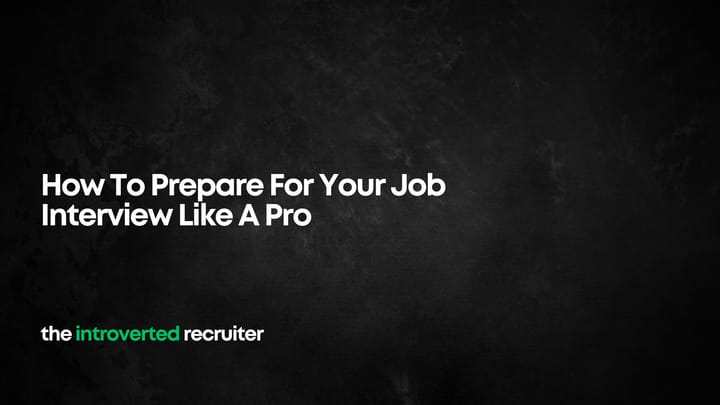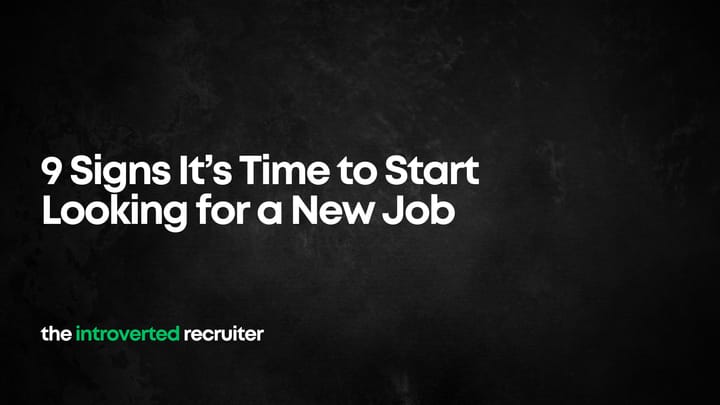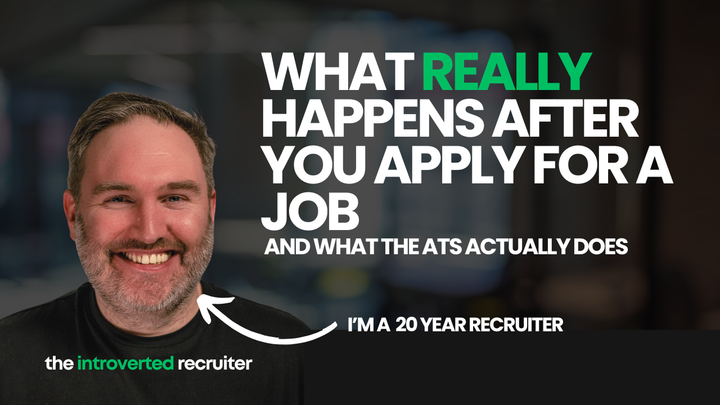50 common behavioural job interview questions and how to answer them

Behavioural interview questions are designed to help interviewers understand how candidates have handled various work situations in the past, based on the belief that past behaviour is a good predictor of future performance.
When answering these questions, it’s important to be specific and authentic, using the STAR method (Situation, Task, Action, Result) to structure your responses. This approach helps you present clear, structured, and impactful answers that highlight your skills and experiences.
Here are 50 common behavioural interview questions along with guidance on how to answer them effectively:
The Introverted Recruiter is a reader-supported publication. To receive new posts and support my work, consider becoming a free or paid subscriber.
Tell me about a time when you handled a challenging situation.
💡 Answer Tip: Focus on a specific challenge, describe the actions you took, and emphasise the positive outcome.
Example Answer: "In my previous role as a customer service manager, we faced a sudden increase in call volume after launching a new product. (Situation) I needed to quickly reduce wait times while maintaining our service quality. (Task) I reallocated team resources, introduced a shift rotation, and implemented additional training sessions on the new product. (Action) As a result, we reduced average customer wait times by 30% and increased customer satisfaction ratings during that period. (Result)"
Can you describe a moment when you went above and beyond for a job?
💡 Answer Tip: Provide an example where you exceeded expectations and explain why you chose to put in the extra effort.
Example Answer: "At my last job, our IT department was under pressure to deploy an upgrade before the fiscal year-end. (Situation) My task was not only to oversee the deployment but also to ensure it was seamless for all users. (Task) I volunteered to stay late and work through the weekends, providing support and troubleshooting issues as they arose. (Action) This commitment helped us meet our deadline with a successful deployment, contributing to a 15% improvement in system efficiency. (Result)"
Have you ever made a mistake at work? How did you handle it?
💡 Answer Tip: Be honest about a mistake but focus on what you learned and how it improved your professional behaviour.
Example Answer: "Once, I misunderstood a client's specifications for a project, which caused a delay. (Situation) Realising my error, I needed to address the situation without compromising the project timeline. (Task) I immediately informed my manager and the client, apologised, and proposed a new timeline that included overtime work at no extra charge. (Action) The client appreciated my transparency and dedication, and the project was completed with commendations from the client on our customer service. (Result)"
Tell me about a time you had to handle pressure at work.
💡 Answer Tip: Describe the situation and the specific steps you took to remain calm and effective.
Example Answer: "During a product launch, our team discovered a major software bug. (Situation) As the project leader, my task was to resolve the issue promptly while keeping the launch on track. (Task) I coordinated a round-the-clock troubleshooting team and set up hourly progress checks while maintaining communication with stakeholders. (Action) We resolved the bug in time, launched successfully, and the transparency maintained stakeholder confidence. (Result)"
Can you give an example of how you've worked on a team?
💡 Answer Tip: Highlight your ability to collaborate, share responsibilities, and achieve common goals.
Example Answer: "In my previous role,



